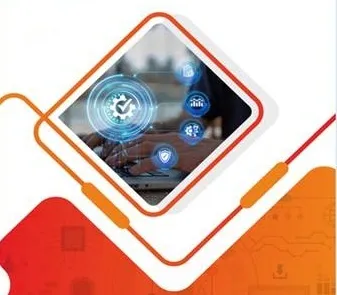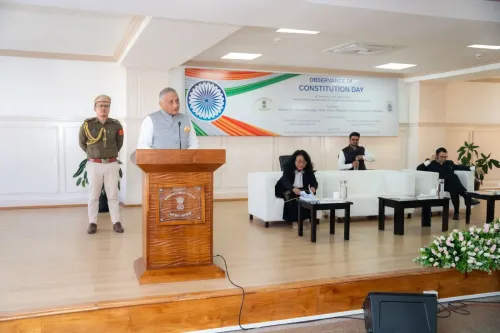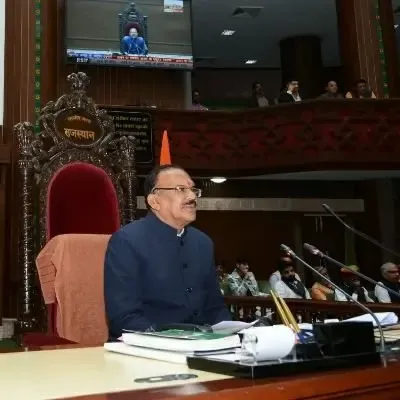How Many E-services Have Crossed 21,060 in India's States and UTs?

Synopsis
Key Takeaways
- 21,062 e-services available in India.
- Majority in Local Governance and Utility Services sector.
- 1,599 mandatory e-services online.
- 16 states surpassed 90 percent saturation.
- Maharashtra and Uttarakhand achieved 100 percent saturation.
New Delhi, June 19 (NationPress) The cumulative count of e-services across states and union territories in India has reached an impressive 21,062, with a significant portion (7,065) categorized under Local Governance and Utility Services, as reported by the Department of Administrative Reforms and Public Grievances (DARPG) on Thursday.
In April alone, 424 new e-services were introduced by various states and UTs, with Tripura leading the way in contributions across all focus sectors, according to the National e-Governance Service Delivery Assessment (NeSDA) report.
Out of a total of 2,016 mandatory e-services (56 for each of the 36 states/UTs), 1,599 are now available online, achieving a saturation rate exceeding 79 percent.
Notably, 16 states and UTs have surpassed a saturation level of 90 percent, while both Maharashtra and Uttarakhand have achieved full saturation.
The report emphasizes Chandigarh's dedication to enhancing public service delivery through the Right to Services (RTS) framework and highlights ongoing initiatives to unify service delivery and ensure real-time transparency for citizens.
Additionally, it details the e-services accessible via each state and UT's unified service delivery portals and the incorporation of three new assessment parameters into the NeSDA framework: Open Government Data, e-participation, and the adoption of Emerging Technologies.
Exemplary practices in service delivery, such as those from Central government ministries/departments, the Goods and Services Tax Portal, and the National Cyber Crime Reporting Portal, are highlighted in the report.
The DARPG established the National e-Governance Service Delivery Assessment (NeSDA) Framework in 2019 to evaluate the e-service delivery of states, UTs, and Central Ministries as a benchmarking exercise across seven sectors.
Conducted biennially, the NeSDA study tracks progress in e-service delivery across states and UTs through inputs provided on the NeSDA Way Forward Dashboard, monthly reports, and regular review meetings with SPoCs from various states and UTs. To date, 25 NeSDA Way Forward Monthly Reports and the Annual Report 2023 have been published to monitor e-service delivery status.
This series of NeSDA Monthly Reports consistently evaluates the scale and quality of e-services offered across all states and Union Territories since its inception in April 2023, regularly reporting on three crucial categories: all e-Services, mandatory e-Services, and those provided through a unified portal.









